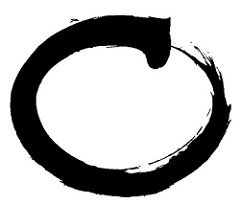Ralph Waldo Emerson, the son of a Unitarian minister and a chaplain during the American Revolution, was born in 1803 in Boston. He attended the Boston Latin School, and in 1817 entered Harvard, graduating in 1820.
Emerson supported himself as a schoolteacher from 1821-26. In 1826 he was “approbated to preach,” and in 1829 became pastor of the Scond Church (Unitarian) in Boston. That same year he married Ellen Louise Tucker, who was to die of tuberculosis only seventeen months later.
In 1832 Emerson resigned his pastorate and travelled to Europe, where he met Coleridge, Wordsworth, and Carlyle. He settled in Concord, Massachusetts, in 1834, where he began a new career as a public lecturer, and married Lydia Jackson a year later. A group that gathered around Emerson in Concord came to be known as “the Concord school,” and included Bronson Alcott, Henry David Thoreau, Nathaniel Hawthorne, and Margaret Fuller.
Every year Emerson made a lecture tour; and these lectures were the source of most of his essays. Nature (1836), his first published work, contained the essence of his transcendental philosophy , which views the world of phenomena as a sort of symbol of the inner life and emphasizes individual freedom and self-reliance. Emerson’s address to the Phi Beta Kappa society of Harvard (1837) and another address to the graduating class of the Harvard Divinity School (1838) applied his doctrine to the scholar and the clergyman, provoking sharp controversy.
An ardent abolitionist, Emerson lectured and wrote widely against slavery from the 1840’s through the Civil War. His principal publications include two volumes of Essays (1841, 1844), Poems (1847), Representative Men (1850), The Conduct of Life (1860), and Society and Solitude (1870).
Emerson died of pneumonia in 1882 and was buried in Concord.
Live in the sunshine, swim the sea, drink the wild air.
Love and you shall be loved.
Love of beauty is Taste. The creation of beauty is Art.
Most of the shadows of this life are caused by our standing in our own sunshine.
Nothing can bring you peace but yourself; nothing, but the triumph of principles.
Nothing great was ever achieved without enthusiasm.
Nothing is at last sacred but the integrity of your own mind.
Peace cannot be achieved through violence, it can only be attained through understanding.
Peace has its victories, but it takes brave men and women to win them.
People do not seem to realize that their opinion of the world is also a confession of character.
People only see what they are prepared to see.
Shallow men believe in luck; strong men believe in cause and effect.
The earth laughs in flowers.
The foundation of every state is the education of its youth.
The hero is no braver than the ordinary man, but he is brave five minutes longer.
The ornament of a house is the friends who frequent it.
The real and lasting victories are those of peace, and not of war.
The reward of a thing well done is to have done it.
The secret of education lies in respecting the pupil.
The wise man in the storm prays to God, not for safety from danger, but deliverance from fear.
The years teach much which the days never knew.
Though we travel the world over to find the beautiful, we must carry it with us or we find it not.
To be yourself in a world that is constantly trying to make you someone else is the greatest accomplishment.
To different minds, the same world is a hell, and a heaven.
To know even one life has breathed easier because you have lived, this is to have succeeded.
Truth is always present; it only needs to lift the iron lids of the mind’s eye to read its oracles.
Truth is the property of no individual, but is the treasure of all men.
Unless you try to do something beyond what you have already mastered, you will never grow.
What lies behind us and what lies before us are tiny matters compared to what lies within us.
What you do speaks so loud that I cannot hear what you say.




